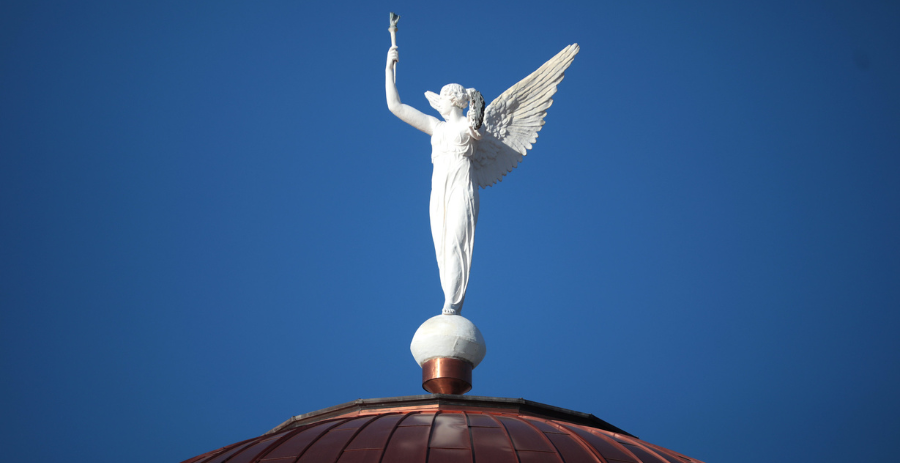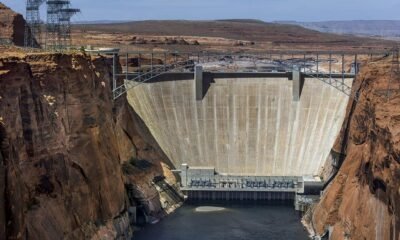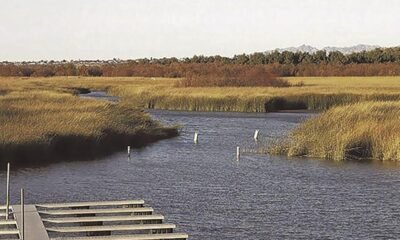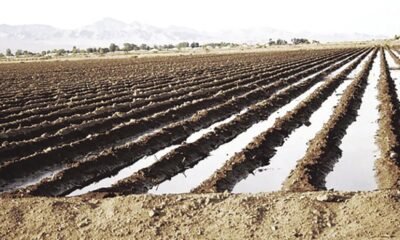arizona
Water Authority’s Hidden Rainy-Day Fund: Unveiling the Untapped Reserve

As Arizona approaches the next legislative session, the Water Infrastructure Finance Authority (WIFA) is striving to maintain its funding against a backdrop of substantial cuts. Recently, the Legislature reduced WIFA’s budget by nearly $500 million in efforts to combat a $2 billion state deficit.
Chelsea McGuire, WIFA’s assistant director of external affairs, emphasized the agency’s need to demonstrate its value to lawmakers. Despite the current financial climate, she stated that WIFA’s budget request for the upcoming session is modest, seeking only $25 million to continue funding for water conservation grants initiated during the pandemic.
This request is primarily aimed at safeguarding previously allocated funds rather than seeking new appropriations. “It’s actually a pretty ambitious ask considering that we now have a trend of two years in a row of the state taking money from WIFA,” McGuire remarked, highlighting ongoing budgetary challenges.
The latest budget signed by Governor Katie Hobbs slashed $430 million from WIFA’s Long-Term Augmentation Fund and redirected an additional $60 million from rural water supply development projects, deeming the decisions “short-sighted” by WIFA officials. In response, the agency is focusing on its water conservation grant program, which began in 2022 after Arizona received $200 million in federal aid to enhance water efficiency.
By June’s end, WIFA had effectively allocated these federal funds, supporting 186 projects projected to save an impressive 5.5 million acre-feet of water over their lifespan. To assess future needs, the agency conducted a survey among potential applicants and found a demand of at least $100 million for more than 110 additional conservation projects that could save between one and three million acre-feet of water.
Grants under this program can fund projects up to $3 million, focusing on various initiatives such as agricultural efficiency, meter upgrades, and turf removal. WIFA’s current request aims to secure $25 million, with hopes to extend support for these programs over the next two fiscal years, ultimately totaling $75 million.
An alternative proposal presented by WIFA suggests seeking a one-time appropriation of $100 million, although McGuire acknowledged the reality of tight state budgets. However, optimism remains as the Joint Legislative Budget Council reported that state revenues have exceeded budget forecasts by over $400 million, offering a potential avenue for funding.
McGuire expressed encouragement from preliminary discussions with the Governor’s Office regarding the budget, even though detailed negotiations have yet to take place. A key goal for WIFA is to preserve the integrity of the Long-Term Water Augmentation Fund, established in 2022 to facilitate water importation into Arizona. Past promises of $333 million in funding for this initiative have come under scrutiny, with significant cuts already imposed.
“If we continue to look at WIFA’s funds as a soft rainy day fund, we can’t be a serious partner,” McGuire warned. Her statement reflects a broader concern that without adequate funding, the agency’s efforts to secure water resources for Arizona may falter.


















